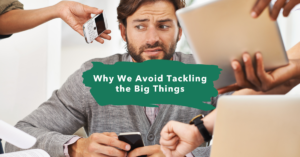In the past, education was seen as something relegated to youth – grade school, middle school, high school and then college. And then you were finished. Go start your career and be done with all that learning mumbo jumbo.
Of course, there may have been the occasional training course or workshop or seminar. A few hours stolen from productive work – and often only if the budget allowed, your boss was benevolent about freeing you from your duties, and you had the inclination.
That may have worked when new technologies took decades to be realized and when you worked in a local economy, rather than a global one. It doesn’t work at all today.
I oversimplified. There are many of us who are continual learners, who reinvest in ourselves year over year over year; who go back to school; read voraciously; go to conferences and seminars and webinars. That I know.
Yet I see that there is a great preponderance of folks who are neither afforded nor take the opportunities that present themselves to learn something new. I see training budgets slashed and development outsourced. I poll college students and am dismayed at how few read anything outside of what is required, and even then as little and lightly as possible. I field requests from managers to cram huge amounts of learning into two-hour chunks, when what is required is more like two days. And then I see participants fail to come due to the demands of their jobs or when they do come, spend much of the precious learning time multi-tasking.
“I don’t think much of a man who is not wiser today than he was yesterday.”
~ Abraham Lincoln
All this is shortchanging adult learning at a time when it has never been more important – for each of us, no matter our role. In fact, learning agility is increasingly seen as the “must have” skill for leaders, as seen in this white paper for the Center for Creative Leadership.
I’d like to see us shed these myths and reframe our thinking about learning as adults.
Learning Myths:
- Learning occurs only at school or in a classroom.
- Learning can only occur with someone teaching me how to do something,
- I don’t have time to learn anything new – I am barely getting through the day as it is.
- I can’t be a good learner – I barely got through school as it is.
- Old dogs can’t learn new tricks. I am too old to learn something new.
- Learning is hard work.
- If I really need to learn new skills, my employer will let me know.
Learning Truths
- I am accountable for my own learning.
- Learning is more important now than ever.
- There are many ways to learn new things.
- Practice does matter.
- I learn in my own unique way and learning how I learn can help me learn better and faster.
- Learning is fun.
- Learning is empowering.
- Learning is an investment in myself – and I am worth it.
So in my next few posts, I’ll explore what makes someone an “agile learner” and share with you some time-tested tips for investing in yourself. I hope you’ll share what works for you – so that together we can rethink this notion of learning as an adult.




